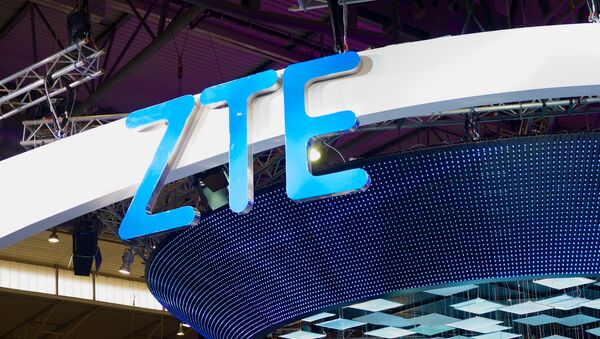In April, the Trump administration banned US firms from selling telecommunications equipment made by the ZTE Corporation over suspicions that the Chinese company might have supplied equipment to Iran and North Korea. For its part, ZTE has called the decision unfair and vowed to protect its rights.
Last week, the Trump administration announced that it had reached a deal to lift penalties against ZTE.
"At about 6 a.m. this morning, we executed a definitive agreement with ZTE. And that brings to a conclusion this phase of the development with them," Commerce Secretary Wilbur Ross told CNBC June 7.
The deal includes a $1 billion penalty against ZTE and requiring a US-chosen compliance department to be embedded into the company.
"We are literally embedding a compliance department of our choosing into the company to monitor it, going forward. They will pay for those people but the people will report to the new chairman," Ross stated.
He noted that if the company does violate it again, in addition to the $1.4 billion they are paying the US up front, it would have "to put $400 million into escrow… That money will be forfeited if they violate anything… and we still retain the power to shut them down again," Ross said.
"The resistance in the Senate to the ZTE deal is linked to the current Trump-China trade negotiations," Jack Rasmus, a professor of economics at Saint Mary's College of California, told Radio Sputnik's Loud & Clear.
"There are three elements split here in the US trade approach to China: the bankers want more access to China markets and China is giving it to them, Trump wants China to purchase more US goods and China has indicated that it will buy more foreign goods. The odd man out, however, seems to be concern by the Pentagon and intelligence agencies about China technology transfer. Those agencies seem to be on the low-end objective of the US and China trade," Rasmus told hosts Walter Smolarek and John Kiriakou.
"There is some indication that the military and intelligence sector in the US economy are working through the Senate here to establish their goal because ZTE is purchasing US goods and companies and there is this concern that ZTE is a Chinese company that is trying to exploit technology transfer from the US. So, the military is trying to assert itself through Congress," Rasmus added.
On Wednesday, Perdue asked for unanimous consent to do away with the section of the National Defense Authorization Act (NDAA) that would keep the penalties against ZTE.
"[The current Senate bill] would trample on the separation of powers and undercut the Trump administration's authority to impose these penalties," Perdue said, the Hill reported Wednesday. The proposed amendment did not get unanimous consent, and therefore will not be tucked away into the 2019 NDAA.
"We should not tie the hands of the administration to enact penalties as they see fit, particularly in these times of aggressive actions by foreign players."
However, according to Senator Chris van Hollen (D-MD), "removing the provision would send a bad signal to anybody around the world watching that you can violate US sanctions law with impunity, and we shouldn't be doing that."
Van Hollen essentially sought to keep the US' power to make deals with foreign companies in the hands of Congress, while Perdue fought for the executive branch to retain authority over deals with foreign countries.
"I'm sure there is lobbying going on by US telecommunication companies through the Democrats," Rasmus said. "Silicon Valley has a strong relationship with the Democratic Party. It's not clear what the Democrats' motivation is, except to paint Trump as always allying with the former enemies of American capitalism and shooting down the former allies of American capitalism. But it's not clear what their true motivation is."




